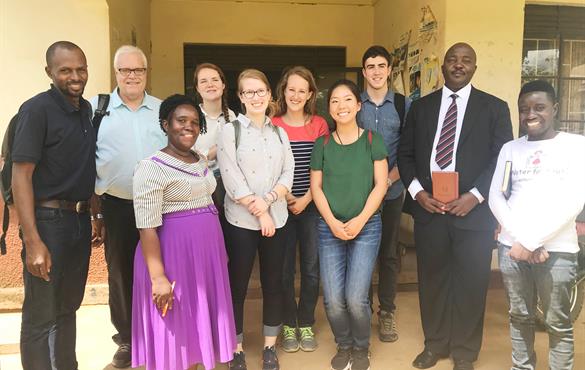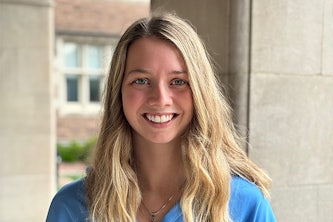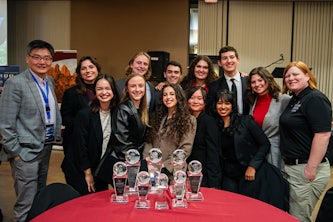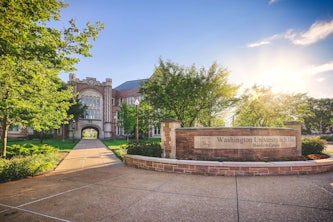Emily Ray, a junior majoring in biomedical engineering in the McKelvey School of Engineering and a project lead for WashU's chapter of Engineers Without Borders, reflects on her work helping to bring clean, accessible water to a primary school in Uganda. Learn more about EWB and its global projects through the blog at ewb.wustl.edu.
My experience at Washington University in St. Louis has been embodied by my time with Engineers Without Borders (EWB). I first learned of the organization when I began applying to colleges, and I immediately knew that it was a group I wanted to be a part of. I inquired about the club on every campus tour, and I was elated to learn WashU had a successful chapter.
EWB allows students to apply theoretical knowledge gained in WashU classrooms to real-world scenarios. Along the way, students learn the practical side of engineering projects that pairs with that knowledge. It’s a national organization that has both student and professional chapters across the United States. Global communities with a need for engineering solutions submit an application that is completed when an EWB chapter in the U.S. finalizes the partnership process.
One of WashU’s two ongoing projects, both in Uganda, is the Bulubandi Project. This project, which I have the honor of leading, has just returned from its first trip to Iganga, Uganda, where we partnered with the Bulubandi Primary School. The school has around 1,300 pupils between the ages of 5 and 14 and has partnered with the WashU EWB chapter to create an improved source for potable water.
Currently, the pupils and teachers depend on unreliable, expensive city water for drinking and cooking. There is no current infrastructure for handwashing or menstrual hygiene. When the city water runs out, children are forced to collect water from a contaminated swamp nearby. Our project aims to first address the creation of a new water source, then create a distribution system that includes areas for good hygiene practices and a safe, hygienic area for young girls to wash their menstrual hygiene products.
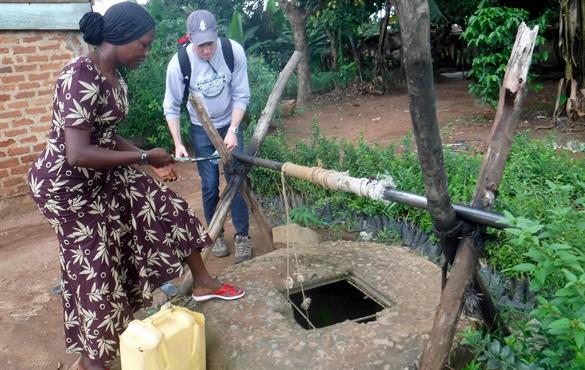
For the Bulubandi Project, it isn't enough to simply know how to build a functioning well. For the project to succeed, we needed to meet with local stakeholders, which included everyone from the mayor to the students, the parents and the teachers at the school itself. To ensure long-term success of the project after the five-year partnership is over, we established a water committee that will monitor and maintain the project once implemented. While necessary, the actual engineering behind a well is, in a way, secondary.
The goal of the first year is to assess the community: To determine the need, to evaluate current resources and obtain all measurements necessary for the project design. During the assessment trip, we collected water samples from nearby wells, protected springs and the city supply. We evaluated the time it took for water to percolate in the soil. We took every dimension of the school property we could: from the distance from the latrines to the school building to the surface area of its roof.
The next three years will be implementation trips and opportunities to build the project from the ground up. The last year of the partnership will be to ensure there are proper maintenance and ownership structures in place that will promote the project’s long-term success.
I am excited to proceed with designing a comprehensive water system for the Bulubandi Primary School with access points for sanitation, menstrual hygiene, cooking and drinking. When classes and meetings resume in the fall, the entire Bulubandi team of about 25 WashU students will be diligently working on designs.
Click on the topics below for more stories in those areas
Back to News
